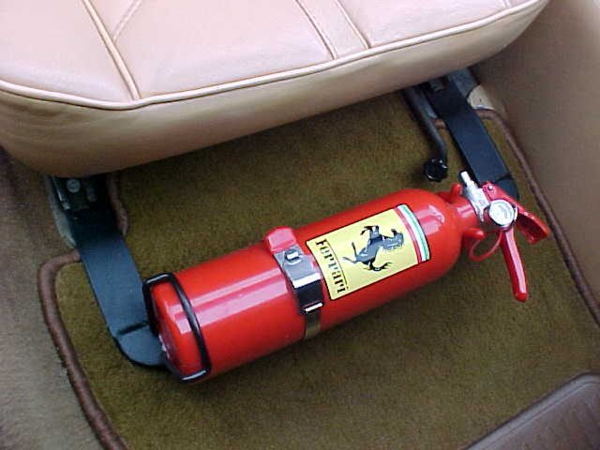While auto owners and car / truck drivers will routinely put up an emergency kit there is one most important item that most miss or just never get around to. It almost should be made a mandatory law that all cars, trucks, Sports Utility Vehicles, vans, busses and commercial vehicle should be equipped with a fire extinguishing device in proper working order. At best, in most cases, while you may find such a unit in a vehicle – they have not been tested or fully checked out. . You would think that being prepared for vehicle emergency fires and fire situations would be basic common sense to most automobile owners and drivers. To begin with all of us have a fire under our hoods in our engines and motors. It’s a simple fact that at auto race tracks as well on board commercial aircraft that fire extinguishers are on hand and indeed mandatory. Shouldn’t they be on hand in your vehicle as well?

Proper Choice of an Auto Fire Extinguisher – UL or Canadian
C.S.A. Approved Standards:
For your fire extinguisher you cannot go to far wrong if your device has a UL (Underwriters Laboratory Inc.) seal. In Canada the equivalent rating and testing / rating organization is C.S.A. – that is “Canadian Standards Association”. Simply put every car should carry a fire extinguisher, yet in actuality few do on North American roads and highways. Overall it can be said that the cost is small compared to the savings if a fire should start. Yet be sure to get the proper kind, when you do go shopping for the fire extinguisher itself. The so-called “salt-shaker” type, which you shake to put chemicals on the fire is neither good nor recommended: you cannot get close enough to the fire for the extinguisher to be effective.
Professional fire fighters recommend to buy a portable extinguisher with a gauge – about a two -and-one-half-pound , pressurized dry-chemical, all purpose fire extinguisher for class A,B and C fires. This means it will be effective on fabric fires, such as the upholstery (Class A), oil or gasoline fires themselves (Class B) and lastly electrical fires (Class C).
If Full Class A, B, C Fire Extinguishing Units Are Not Available Next in Line Are B, C Only Units:
If you cannot seem to locate an all purpose – Classes A, B & C fire extinguisher the next recommended units are those with approval ratings for classes B C only. These units can be recharged (if used) at a relatively low cost at companies and firms that sell fire extinguisher equipment and supply themselves. A pressurized dry-chemical extinguisher itself generally will only need recharging after use (to fight or put out a fire itself) of when the pressure itself (as measured on the handy pressure gauge is down or low).
Pitt Meadows
Pitt is a well known character – well known throughout the British Columbia lower mainland and environs of Vancouver. Meadows loves cars & trucks and has been around them since a kid. Yet he says most automobile owners and drivers seem to think little of regular and ongoing maintenance for their truck or car and less even for safety. Where he says are you going to find emergency service for your used truck in Surrey BC at 2 am Sunday morning ? Worse yet he says if you have a vehicle fire are you going to wait for the New Westminster or Surrey fire department to show up in a flash for your roadside emergency. Smokey the Bear says be prepared and so should you.

